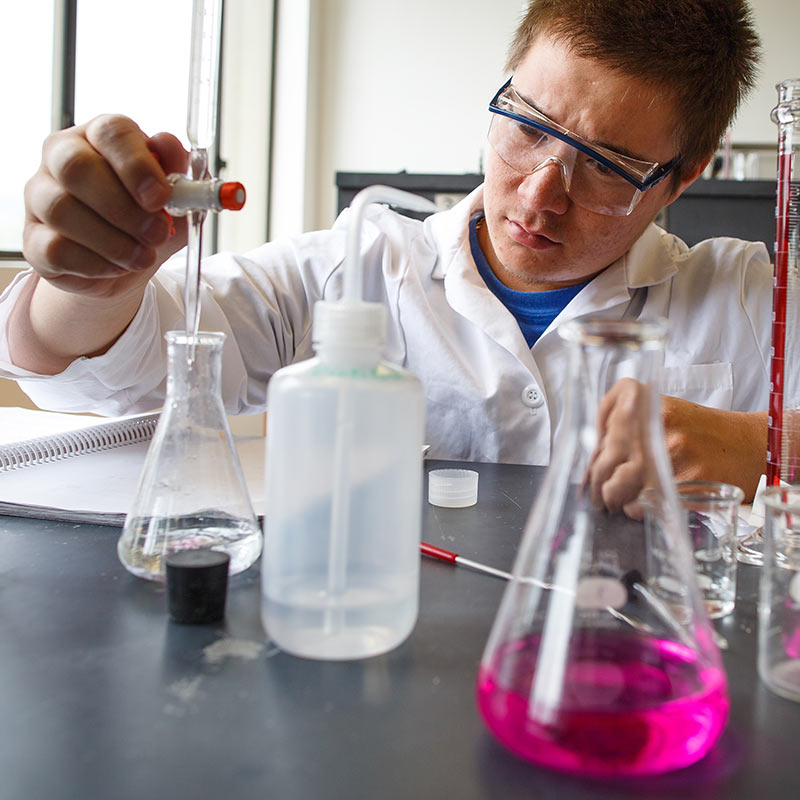Freshman Year [or Year 1]
In the fall of your freshman year, you can expect to take:
- University Seminar
- Chemical Problem Solving
- General Chemistry I (includes Recitation & Lab)
- Principles of Biology (includes Lab)
- Precalculus I, Precalculus II, or Calculus I, depending on your math level
– 19 credits.
Winter term of freshman year, students pursuing the BS in Forensic Chemistry take:
- University Seminar
- Chemical Problem Solving
- General Chemistry II (includes Lab & Recitation)
- Principles of Biology (includes Lab)
- Their next math class, based on their fall progress, either Precalculus II or Calculus I
– 19 credits.
For the spring term, freshmen will take:
- University Seminar
- Chemical Problem Solving
- General Chemistry III (includes Lab & Recitation)
- Principles of Biology (includes Lab)
- Calc I or Calc II
– 19 credits.
Sophomore Year [or Year 2]
In the fall of sophomore year, students pursuing the BS in Forensic Chemistry can expect to take
- Organic Chemistry (includes Lab, Recitation, & Workshop)
- General Physics I (includes Recitation & Lab)
– 12 credits.
Winter term in your second year you will likely take the following courses:
- Organic Chemistry (includes Workshop)
- Organic Spectroscopy (includes Lab)
- General Physics II (includes Recitation & Lab)
– 14 credits.
In spring term of their second year, students will generally take:
- Organic Chemistry (includes Lab, Recitation, & Workshop)
- General Physics III (includes Recitation & Lab)
- Criminology
– 16 credits.
Junior Year [or Year 3]
In the fall of junior year, Forensic Chemistry students can expect to take:
- Chemical Research Communication
- Analytical Chemistry (includes Recitation & Lab)
- Physical Chemistry
- Computational Methods
- Communication or Public Speaking
– 16 credits.
In winter term, juniors take:
- Chemical Research Communication
- Instrumental Analysis (includes Recitation & Lab)
- Elementary Statistics
- General Education Strand E/F/G Exploration
– 18 credits.
In the spring term, students may expect to take:
- Chemical Research Communication
- Biochemistry (includes Lab)
- Advanced Instrumental Analysis
- General Education Strand E/F/G Exploration
- General Education Strand H/I/J Integration
– 15 credits.
Senior Year [or Year 4]
In the fall of their senior year, Forensic Chemistry BS students can expect to take:
- Senior Project
- Biochemistry
- Genetics (includes Lab)
- Criminology
- General Education Strand H/I/J Integration
– 16 credits.
In winter term, seniors generally take:
- Senior Project
- Biochemistry (includes Lab)
- Cell or Molecular Biology
- Criminology
– 15 credits.
Spring term of year 4, Forensic Chemistry BS students complete their undergraduate education with the following courses:
- Senior Project
- Biochemistry (with Lab)
- General Education Strand E/F/G Exploration
- General Education Strand H/I/J Integration
– 14 credits.

